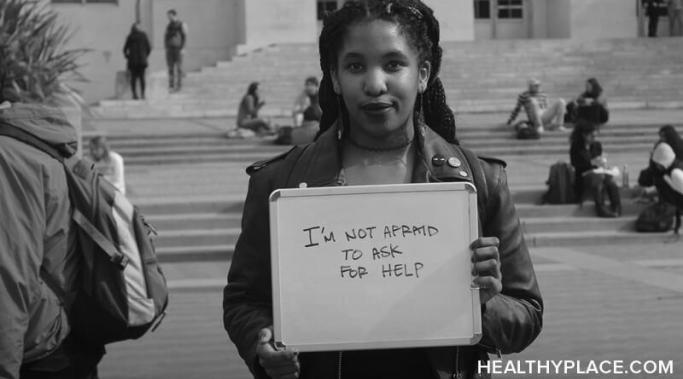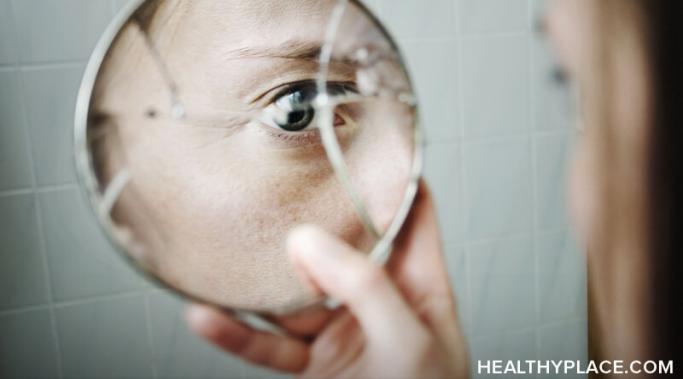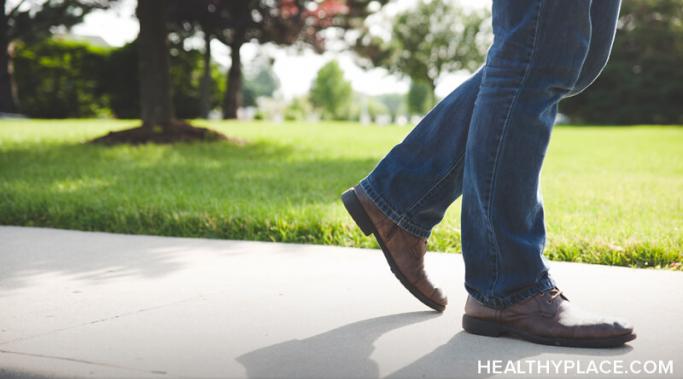It's really okay to be lazy sometimes. Many of us with mental illness have been called lazy at one time or another due to the symptoms of our mental illness. When people don't understand our symptoms, they often try to shame us into simply not being mentally ill anymore by saying we're just being lazy or aren't trying hard enough. "Lazy" then transforms from a simple descriptive word to a powerful tool of shame. "Lazy" becomes the worst thing we could possibly be, and many of us avoid it at any cost. But the truth is, those of us with mental illness can be just as lazy as anybody else.
Embracing Mental Health Recovery
A few months ago I underwent eye muscle surgery to better align my eyes. This is a problem I have struggled with since birth, so it really gave my confidence a boost to look in the mirror and see straight eyes. The surgery was elective and something I really had to ask for.
Being honest in therapy is much easier said than done. Even though we go to therapy because we want help, there may be certain things we've never discussed with anyone, let alone a complete stranger. Or if you're like me, it's not that you don't want to be honest, it's that you get all turned around in your head the moment you walk into the office and completely forget what you were going to say. For others, you may never have had a person you could truly be honest with, and now you aren't sure how to go about it.
My husband and I are standing in the kitchen of our new house, picking out paint colors and deciding which projects to tackle first, when suddenly I think "It doesn't matter, I won't be there to enjoy it. I'm going to end up killing myself eventually." I don't mean to think this. I don't want to think this. Luckily, I've had experience with these intrusive suicidal thoughts before, and I'm able to stay calm. I know that I don't want to die, I'm just experiencing a lot of change and my brain is seeking out the comfort of its old neural pathways.
Unfortunately, stigma is real, and it's dangerous. It is visible in public, and it comes full circle affecting patients and professionals alike. Stigma keeps mental illness in the dark and misunderstood, and often prevents sufferers from seeking the help they need.
I noticed some time ago that I've been choosing to stay sick because it's the devil I know. I've been dealing with mental health problems for nearly half a decade, but it's only in the last year that I've finally started making real progress toward recovery. This is because I finally admitted to myself that I was choosing to stay sick because it was what I knew how to do. Recovery was going to involve a lot of truth and change that I wasn't prepared to face, so I just didn't.
Mala beads may not help everyone, and, for me, dealing with my mental illness means medications come first. However, being open to learning additional methods to improve your life and functioning is also important. When you discover new and healthy ways to cope, go with it. Everyone is different, so use what works for you. I recently saw a post on Facebook about mala beads. I was intrigued and bought a necklace. I was excited when they arrived, and even though meditation had been difficult for me in the past, I was definitely willing to give it a try with my new mala beads.
I've resisted recovery for all kinds of reasons, including because I was sick of trying to be perfect. I spent most of my adolescence trying not to be like other teenagers, not to go through "phases" or be bad. I tried so hard to do things "right." When mental illness appeared in my life, I could barely do things at all, let alone do them "right," so I got angry.
Working benefits my mental illness recovery and has been an important part of my recovery. I love my current job, but even previous jobs that were stepping stones aided my mental health recovery. I've grown as a person because of them.
It's important to manage expectations in recovery because you don't want to strive for the impossible goal of simply not having a mental illness anymore. The truth is, recovery just doesn't work that way. The vast majority of us can't get rid of our mental illness entirely, but we can find ways to cope with it and reduce its impact on our lives. Recovery is about working with your brain to live the most functional, enjoyable life possible.









